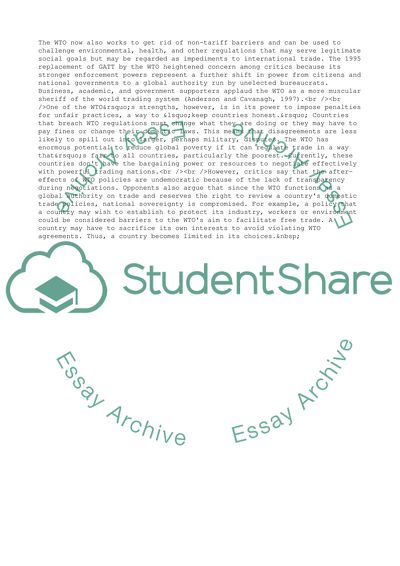Cite this document
(The Strengths and Weakness of World Trade Organization Term Paper, n.d.)
The Strengths and Weakness of World Trade Organization Term Paper. Retrieved from https://studentshare.org/business/1704772-world-trade-law
The Strengths and Weakness of World Trade Organization Term Paper. Retrieved from https://studentshare.org/business/1704772-world-trade-law
(The Strengths and Weakness of World Trade Organization Term Paper)
The Strengths and Weakness of World Trade Organization Term Paper. https://studentshare.org/business/1704772-world-trade-law.
The Strengths and Weakness of World Trade Organization Term Paper. https://studentshare.org/business/1704772-world-trade-law.
“The Strengths and Weakness of World Trade Organization Term Paper”. https://studentshare.org/business/1704772-world-trade-law.


